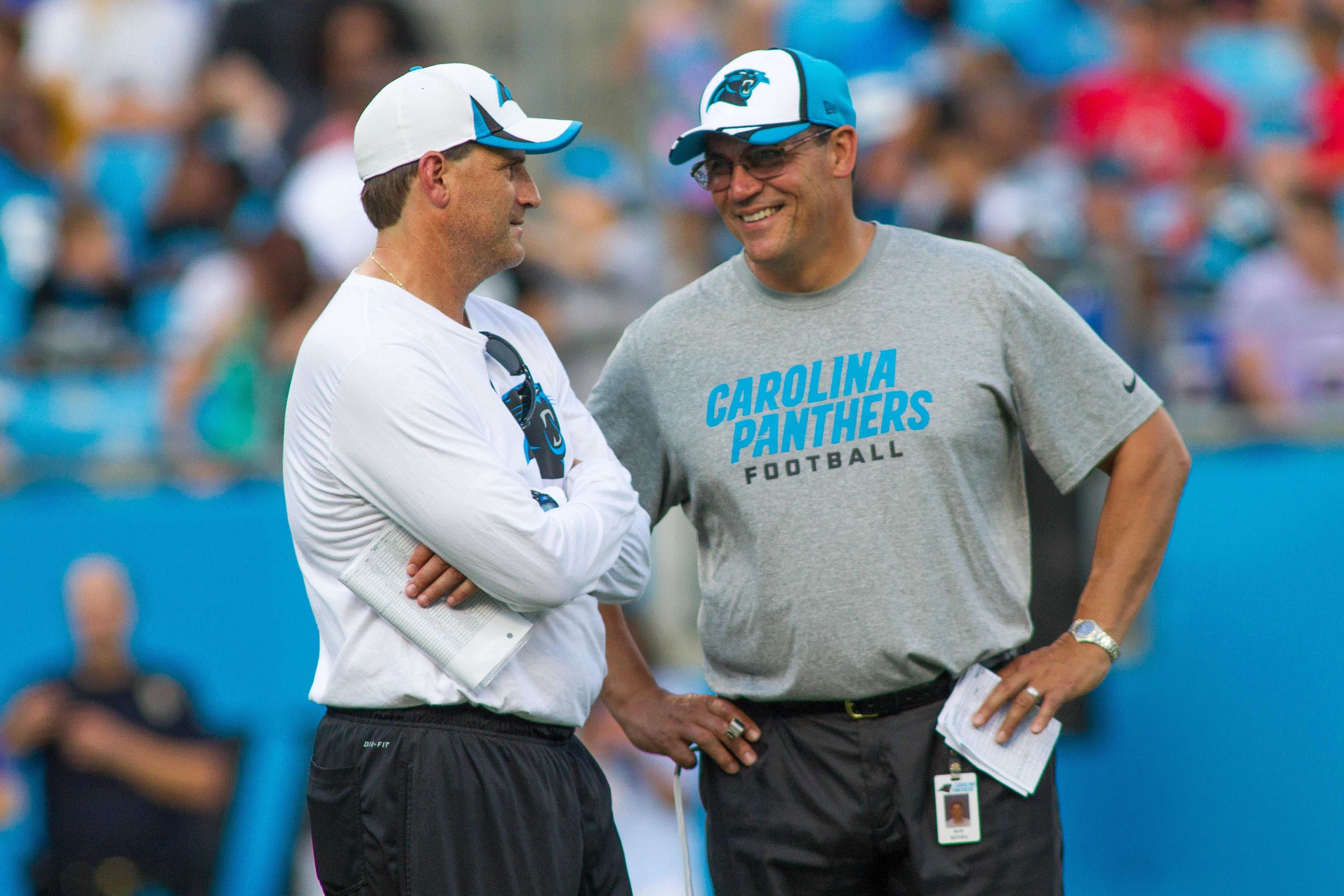
It’s complicated: Mike Shula becomes a head coaching candidate once again
By Will Heath
Published:
Alabama fans have a somewhat complicated relationship with Mike Shula.
On the one hand, he’s an alum, a former quarterback who somehow managed to start three seasons in what was at the time an innovative pro-style offense. He succeeded despite having arm strength that could generously be described as “mediocre.”
He quarterbacked Alabama to its only win over Notre Dame, and was the signal-caller for stirring back-to-back wins over Auburn in 1984 and 1985 (both those wins have names, if that tells you anything).
But he was also a head coach at Alabama. It, well … it didn’t go so well.
(We’ll get back to that in a minute.)
Shula is once again a hot name in coaching circles these days. His team — the Carolina Panthers, where he serves as offensive coordinator — are one win away from the Super Bowl, and features the No. 1-scoring offense in the country. Its mercurcial quarterback, Cam Newton, is the overwhelming favorite to win NFL Most Valuable Player honors, and Shula is widely credited as the reason why.
Shula, 50, says he wasn’t contacted and didn’t do any shopping for any of the seven head coaching vacancies in the league this offseason, but said he is open to the possibility in the future.
And here’s where it gets complicated.
During his four years at Alabama, Mike Shula developed a reputation as one of the true “nice guys” in all of football. His sideline demeanor — in addition to his dreamy good looks — made him an instant hit among the Alabama fan base pretty much from the moment he accepted the job in the spring of 2003.
That goodwill had evaporated by the time the university fired him, two days after a 22-15 loss to Auburn, Shula’s fourth in four seasons and the fifth consecutive defeat. Shula left town with a record of 26-23, and only his 2005 team — the one that finished 10-2 and beat Texas Tech in the Cotton Bowl — finished the season with a record over .500.
Shula’s firing was nationally panned by college football pundits, who believed Alabama’s fan base was holding on to unrealistic expectations, and asking more of its program than it had a right to ask.
Hadn’t Shula, after all, taken over in the most unusual circumstances by taking the job after the embarrassing Mike Price incident? Hadn’t he recruited and coached under NCAA restrictions every season he was in Tuscaloosa (Alabama wasn’t officially off probation until June 2012)? Hadn’t he earned signature wins over Florida and Tennessee in 2005?
Hadn’t he been a loyal servant through everything? Didn’t the university at least owe him a chance to prove himself with all of the program’s resources at his disposal?
This, of course, is what I meant when I said “complicated” at the outset of this discussion. I watched all four of Mike Shula’s seasons up close, and can say with some confidence that he was a perfectly likeable guy who did his best with the hand he was dealt.
But he also had taken the program as far as it was going, and change was inevitable.
It would be easy to dismiss Shula’s success at Carolina as a product of the superhuman signal-caller he finds himself coaching — most of us would look pretty good calling plays for Cam as opposed to, say, John Parker Wilson.
But it’s worth noting that Cam’s production has increased in 2015 — he’s thrown for 35 touchdowns and run for 10 more — and he’s done it without top wideout Kelvin Benjamin, who injured his knee during training camp.
So it’s hard to account for Shula’s success. Maybe the most logical explanation is the simplest: After a lifetime spent in and around football, the man has finally come into his own and is ready to be a head coach at the highest level.
Alabama fans are happy with where their program is these days. Nick Saban has been a more than suitable replacement. (Massive understatement there.)
But Tide fans also would likely applaud if Shula did land another head coaching position one of these days.
Like I said. It’s complicated.
Will Heath is a contributing writer for Saturday Down South. He covers SEC football.







